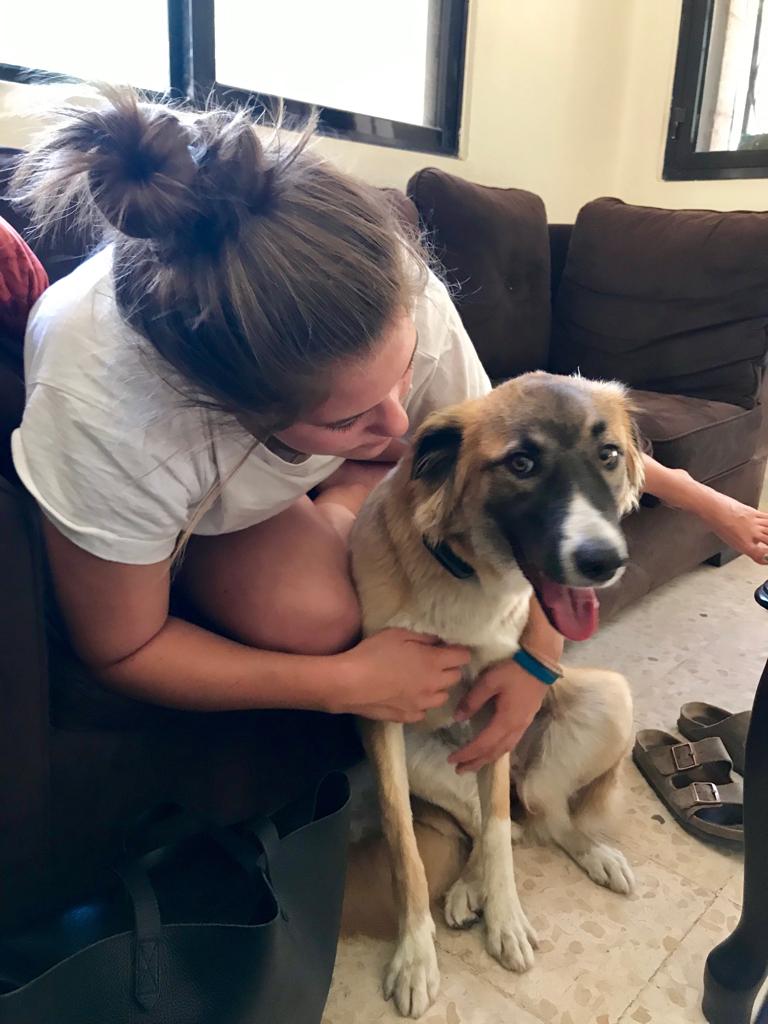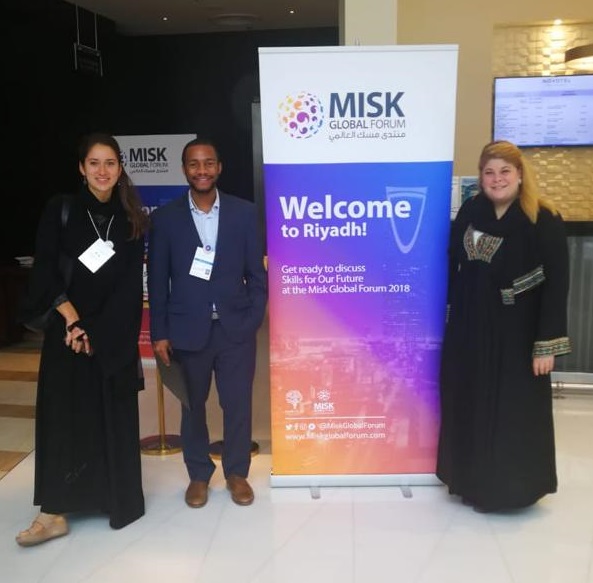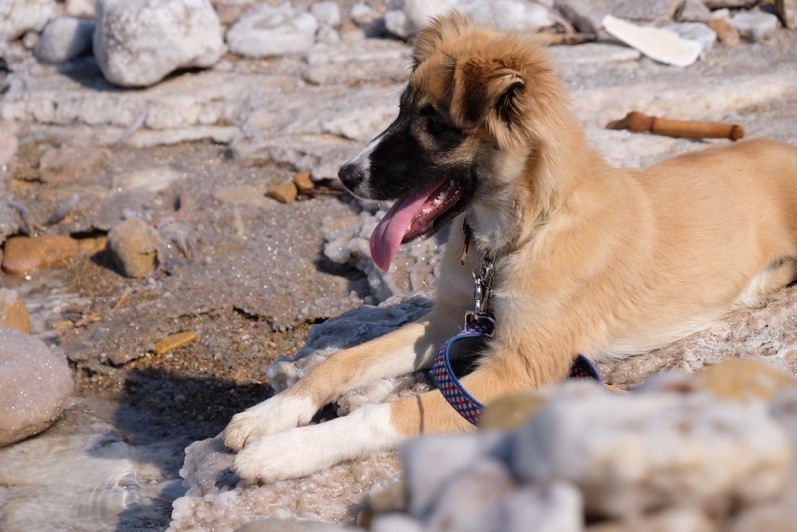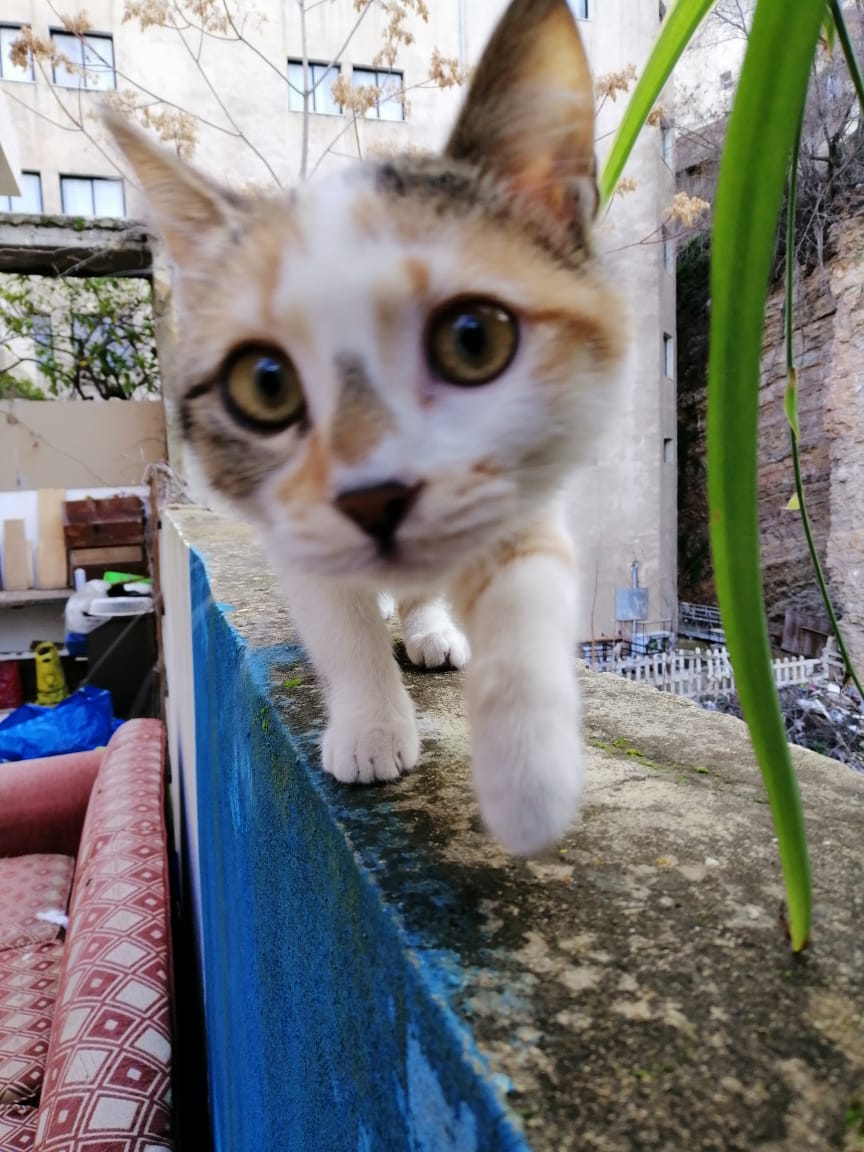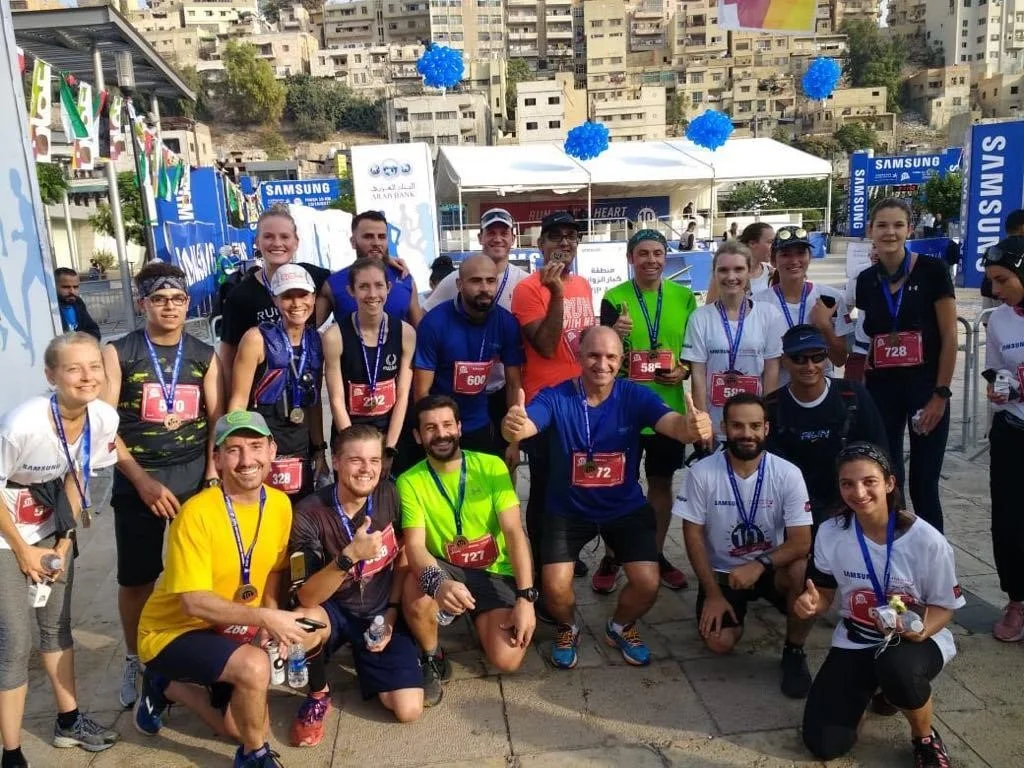It’s hard to believe that I will be rounding out my first two months in Amman in just a few days. My first trip to Jordan last summer lasted a total of two months, and I remember being entirely ready to head home and see my family and friends.
At the beginning of September, I moved into a new apartment which will hopefully be my home for the duration of my stay in Amman. I now live with two Jordanian siblings in an area of Amman called Weibdeh. The younger brother, whose room is right next to mine, is 20 years old and his older sister, whose room is on the other side of mine, is 25 years old. Their older sister lives upstairs with her husband, and my friend and co-worker, lives across the stairwell. I am loving being surrounded by family members and friends, and in a way, it reminds me of the surreal experience I had living with 14 of my closest girlfriends on one floor of an apartment building last year in Madison, Wisconsin.
In the months leading up to my departure from the U.S., I made an effort to mentally prepare for being gone for a full year. Instead of saying that I was traveling to Jordan, I told people that I was moving, which conveys more of a sense of permanence. I knew that acknowledging the length of my stay would be one step of settling in and feeling at peace with my routine in Amman. In this first blog post, I want to focus on several of the simple things which have made me feel like I’m settling into my new life, while also staying in touch with the humans I love back in the U.S.
String Lights, Plants, and Hooks
This week, I finally had a chance to settle into my room. I fiddled with a power strip for an hour, getting it to work, hung string lights in my room, bought a basil plant, and hung pictures of my family and friends from home. There was something about the 3 hour process of drilling hooks into the wall with my new neighbor that finally started to make me feel settled. We spent about an hour attempting to make the holes in this metal hook larger because the screws we needed to use would not fit. By repeatedly bending the metal holes with screws by hand, we eventually made that happen (though perhaps inefficiently). What else did I learn from my experience of room decorating? That string lights and basil plants make me unreasonably content. I love the sense of ownership that growing a plant provides, as I water it each morning and ensure that it doesn’t die (hopefully). I will be living in this apartment for 11 months, which a longer time than I ever stayed in one apartment during my time at UW Madison. I gain so much peace from the pictures I’ve posted of those I love and the glow of string lights which have moved with me from room to room for the last 3 years. These memories from home provide me with a sense of support each morning while also helping me remain connected to home.
A Dukan and Bread
There is always something about grocery shopping and doing laundry in a new apartment that makes moving in feel more real to me. Though you won’t find a traditional Pick ’n Save in Amman as you would in Wisconsin, there are a few nearby dukan which do the job. Dukan translates generally to "shop" in English, and these tiny stores are scattered up and down the streets of Amman. I can buy essential groceries and cheap food in the dukan closest to my house, and the owner has started to recognize me. The second necessity that I needed to find in my new neighborhood was bread, which is a staple in every meal and diet here. After a few days, I ventured in the direction opposite my dukan, and I found a bakery that is open 24/7. Now that I have ensured access to basic food, I can say with certainty that I feel more settled in my new neighborhood.
Peaches, Plums, and Inside Jokes
I am convinced, hear me out here, that there are two words that both mean peach here in Jordan – one is darak and the other is khokh. One of my responsibilities at CRP includes daily accounting and petty cash management for center expenses. While that might seem boring, it is actually the highlight of my every day because I reconcile receipts with a staff member whom I will call Abu Amjad. Abu Amjad is an Iraqi refugee with a handful of kids, and he is in charge of all the center purchasing, so my days begin with giving him money and end with registering his receipts. He only speaks Arabic (except he tells me “toodles” when he leaves my office each day).
On my first day independently reconciling with Abu Amjad, he told me that he bought darak. I spend 5 minutes playing 20 questions with him about its color and shape and essentially only discovered that it was a reddish fruit. I then googled darak and got very unhelpful images of Drake, the singer, which was entertaining. Finally, I had Abu Amjad take me to the kitchen and show me a peach, which I promptly explained to him was taught to me as khokh. He proceeded to explain that a khokh is not the same thing. I have now asked my roommates, my neighbors, several friends in Palestine who I met on my trip there, and countless strangers if someone could explain to me the difference between a darak and a khokh, to no avail. Some describe khokh as a plum, while others refute that explanation. Whenever either a darak or a khokh is available as an example, it seems the other is not as a comparison.
While reconciling this past week, Abu Amjad told me he bought both, reopening our discussion of the difference because I don’t know how to translate these fruits correctly into our financial logs. I was explaining this dilemma to my coworker in our taxi ride home, when she started cracking up. I promptly realized that I could have ended this ongoing predicament by simply asking to see both. This realization led to me wildly laughing in the back of a taxi while the driver laughed at how hard I was laughing. I will make sure to update all of my curious readers on the correct translations of these fruits when I figure it out myself. In the meantime, though, this joke has provided me with an ongoing source of joy and comfort. It is a simple reminder of the familiarity that inside jokes and dialogue can create, and such engagements have certainly helped to make me feel as though I’m settling into a community.
***
In the coming months, I know that my schedule will grow more hectic as I start taking part-time Arabic courses. However, I hope to continue reflecting on my experiences and time here in Amman. Some days are longer than others here, but I am thoroughly enjoying my time, and I cannot wait to see what insights the rest of my experiences will bring.











